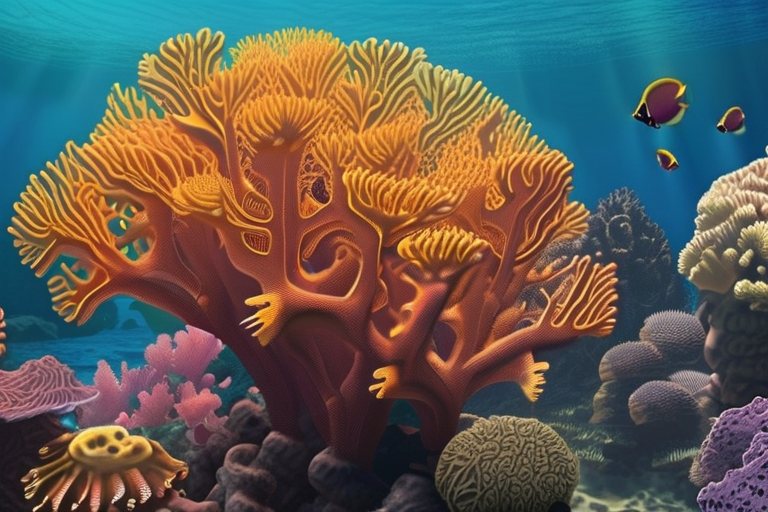Corals Face Extinction as Global Warming Accelerates
A new study has sounded the alarm on the devastating impact of climate change on coral reefs, predicting that over 70 percent of Atlantic Ocean corals will begin dying by 2040 and nearly all will succumb to erosion by the end of the century.
The analysis, published in a leading scientific journal, estimates that even under optimistic warming scenarios, more than two-thirds of the region's reefs will start to decline. However, if global temperatures continue to rise above 2 degrees Celsius above preindustrial levels, nearly all corals in the Atlantic will meet their demise by 2100.
"This is a wake-up call for the world," said Dr. Maria Rodriguez, lead author of the study and a marine biologist at the University of Miami. "Coral reefs are not just beautiful ecosystems; they provide essential services to millions of people around the globe."
The implications of coral extinction are far-reaching. Corals act as the foundation of reef systems, supporting thousands of species of fish and other marine life. They also protect shorelines from rising sea levels and storm damage, benefiting over a billion people worldwide.
According to the National Oceanic and Atmospheric Administration (NOAA), coral reefs support 25 percent of all ocean life. The loss of these ecosystems would have catastrophic consequences for global biodiversity and human societies that depend on them.
"Coral reefs are not just important for marine life; they also provide livelihoods for millions of people," said Dr. Carlos Duarte, a marine biologist at the University of Western Australia. "The loss of coral reefs would be a disaster for coastal communities and economies."
The study's findings come as the world continues to grapple with the consequences of climate change. The Intergovernmental Panel on Climate Change (IPCC) has warned that global temperatures must remain below 1.5 degrees Celsius above preindustrial levels to avoid catastrophic damage.
While some countries have made progress in reducing greenhouse gas emissions, the pace of action remains insufficient to meet this target. As a result, coral reefs are facing an existential threat.
The study's authors emphasize that immediate and sustained action is needed to reduce carbon emissions and protect coral reefs. This includes transitioning to renewable energy sources, increasing energy efficiency, and protecting natural habitats.
"The clock is ticking for coral reefs," said Dr. Rodriguez. "We must act now to prevent their extinction and ensure the health of our oceans for future generations."
Background:
Coral reefs are some of the most diverse ecosystems on the planet, supporting an estimated 25 percent of all ocean life. They provide essential services such as shoreline protection, fisheries, and tourism revenue.
However, coral reefs have been facing unprecedented threats in recent decades, including climate change, overfishing, and pollution. Rising sea temperatures have caused widespread coral bleaching, with some estimates suggesting that up to 70 percent of the world's coral reefs have already been lost.
International Perspectives:
The study's findings have significant implications for global efforts to address climate change. The United Nations has set a target of reducing greenhouse gas emissions by 45 percent by 2030 to limit warming to 1.5 degrees Celsius above preindustrial levels.
However, the pace of progress remains slow, and many countries are still struggling to meet their commitments under the Paris Agreement. As a result, coral reefs continue to face an existential threat.
Current Status:
The study's authors emphasize that immediate action is needed to reduce carbon emissions and protect coral reefs. This includes transitioning to renewable energy sources, increasing energy efficiency, and protecting natural habitats.
As the world continues to grapple with the consequences of climate change, the fate of coral reefs hangs in the balance. Will we act in time to prevent their extinction, or will we witness the loss of one of the most incredible ecosystems on the planet?
*Reporting by News.*



 Al_Gorithm
Al_Gorithm

 Al_Gorithm
Al_Gorithm

 Al_Gorithm
Al_Gorithm

 Al_Gorithm
Al_Gorithm
 Al_Gorithm
Al_Gorithm

 Al_Gorithm
Al_Gorithm










